Questions and Hope for a New Cycle (Part 4)
Ed Moran, row2k.com
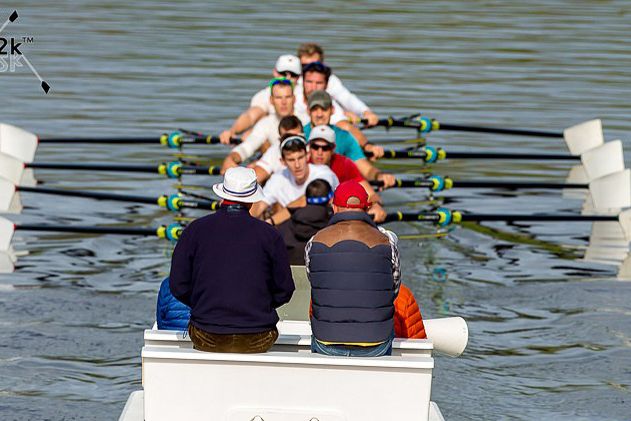
Mike Teti has seen this before.
With only one medal over the past two Olympics, and the men's eight going through two consecutive Final Olympic Qualification Regattas – the so-called "regatta of death" – to get there, the performance of the U.S. men's teams caused examination and questions about the overall state of men's rowing in the U.S. at all levels.
Fingers have been pointed in the direction of internationals being recruited into the top universities; perceptions the U.S. system does not produce or develop a sufficient number of serious, world class oarsmen; that there is a lack of opportunity for young men in U.S. universities; and that funding issues and an overabundance of governance by the national governing system has stymied efforts to select and develop the best available rosters.
All these various questions, while having been argued in some form for years, have emerged with heightened urgency in the months since the 2016 Olympic Games.
Teti was not at all surprised with the questions began in earnest: "Every time something like this happens, everyone wants to look for a reason."
A USRowing Task Force was formed in the fall to examine the current selection and training procedure, the results of which are to be made public early this month.
Changes since the formation of the study group have included naming the resignation of four USRowing board members and Chief Executive Officer Glenn Merry, a new High Performance Committee, and significant changes to the men's coaching ranks, including the search for a new head men's coach.
Nonetheless, during months of multiple interviews by row2k with top U.S. college, club, and national team coaches, the answers that have emerged are mostly encouraging and provide a picture of a future of possible positive change.
Many of these opinions, and suggestions for change, have appeared in the three previous installments of the row2k series, "Men's Rowing in the U.S. The Intersection of U.S. Men's Collegiate and Elite Rowing." (See an editor introduction to the series here.)
Part one discussed the internationals question and its impact (or lack thereof) on the collegiate and elite systems.
Part two addressed the questions surrounding identification and development of possible U.S. elite oarsmen.
Part three examines the available opportunities that currently exist for male junior and high school athletes to row in college, with or without financial assistance. While the opportunities do not approach those available to women in terms of available scholarships as a direct result of Title IX gender equality pressure, the opportunities in both club and varsity programs are plentiful.
This final piece will attempt to lend voice to multiple opinions of where significant roadblocks for future U.S. successes at the elite level may remain, and what possible solutions exist according to those who have been in the game long enough to know.
Among those voices, Teti, the current head men's coach at the University of California and the most successful American men's U.S. national team coach in history, truly believes the tide will turn.

"I'm optimistic," Teti said. "I'm going to say we had a bad patch. I think people recognize a lot of things went wrong and why they went wrong and I think it's going to be corrected. It's just that you have to go through this whole painstaking process."
Task Force Report
The final report is not public, but according to both USRowing and some of those involved, it is complete. The results have come at a cost and considerable disruption. In January four members of the USRowing Board of Directors resigned, and Merry announced he was stepping down effective April 15th.
The board has since been reconstructed and a new CEO is being sought.
Some of the issues addressed include a need to improve retention of experienced athletes; a shallow pool of athletes identified as possible candidates for the senior team; identification and development of potential new athletes; a need for more active scouting in the college ranks; the creation of an environment where athletes are encouraged to find suitable employment and quality of life situations; and debate about training programs necessary for peak performance throughout the Olympic cycle.
Discussion also included changing the camp selection process and team-naming timelines to allow collegiate athletes more flexibility in deciding when to join the training center and selection camps when considering participation in post-season competitions like the Henley Royal Regatta, as well as a move away from weighted National Selection Regatta pairs results that would better suit the inclusion of newer, collegiate athletes with underdeveloped small boat skills.
Other areas under study were a shift away from boat priority for the men from the four to the eight.
Governance and Oversight
Many believe that the system for the last two cycles, in particular fixed team naming dates, is limiting in that it restricts the men's coaches' ability to fully access all possible collegiate prospects at both the under23 and senior levels, and that having the final selection camp selections reviewed and approved hinders a coach's ability to make the choices they want and continues to slow the process.
"To me a lot of the problem is governance," said Teti. "The naming dates, and all that stuff, it all plays into it."
During his early years as the head men's coach, Teti said he did not have to name a team until all possible athletes were available for selection. That, he said, allowed collegiate athletes to finish their competitive season and not to be forced to choose between selection and the success of their college teams.
"In those first couple of years, I didn't have to name the team until a couple of days before we left," he said. "So I had kids that rowed for their college all year, then they went to Henley and I would get them after Henley. You can't do that now.
"All that changed with naming dates. The year I had the U23 boat and we won and set the world record in 2011, there were still a couple of guys that were at Henley but we couldn't take them because they didn't go through the camp. All this governance, I think that's the biggest problem," he said.
"In my opinion here's what you do: you hire the head coaches and then you give them complete autonomy. Do you think (Patriots head coach) Bill Belicheck, when he decides to cut someone or add someone to the roster, has to run it by a committee? Or Charlie Butt at Harvard has to run his boat past a High Performance Committee?
"I believe everyone is trying to make the team better, but at some point, someone has to be in charge," Teti said. "At Cal, they hired me and said OK, this is your budget, you have to stay within your budget. These are your duties and you've got to go produce something. And if you don't, we're going to fire you."
Potential Exists – Buy-In Must Follow
The prevailing opinion is there are plenty of athletes in the United States, and more are being developed. Steve Hargis, USRowing's Junior National Team Development Coach and the junior men's head coach, has been involved in junior national team coaching and development since 1999.
He has been instrumental in building identification and age-specific development camps that he believes are the building blocks of the future, for both men and women.
Hargis said he is encouraged by the results of the junior national men's teams and the progress and impact they have had on the system already. Of the 2016 men's Rio team, eight were former junior national team athletes.
Over the years under Hargis, the junior men's system has expanded and brought a steady stream of competitive athletes into the system. The results are showing up in competition. At the 2016 world junior championships, the U.S. won bronze medals in the coxed four and quad, and silver in the eight.

Hargis does recognize the difficulty the U.S. faces in finding young male athletes for two reasons - the lack of collegiate funding for men compared to women, and the unpredictability of the growth potential of young men.
"We don't know about these kids," Hargis said. He does note there are obvious predictors; "like, my grandfather was 6'6" or 6'5", my father was 6'5" and I turned out to be 6'5". What a surprise."
Because young men have different rates of growth, making decision on who has potential among boys still in school is not an exact science. "On the guy's side, it's always a crap shoot," he said.
For the junior national team, Hargis said the focus over the years has changed from finding athletes they think will develop and stay in the sport to finding guys that can perform now, and then tracking their development and keeping them excited and in the sport toward a senior team trajectory - if it is in the cards.
"I think that the numbers of potential senior teamers will continue to grow," he said. "But another issue is it is sometimes difficult to find those guys who are at the scholastic level to roll them into the national level because of the difference in funding from the women's side of things compared to the men when it comes to collegiate rowing."
Hargis also notes the effect of the much larger number of scholarships available in women's rowing compared to men's rowing.
"There are as many rowing opportunities for young men, but the aspirations to become a national teamer on the girl's side can be driven by educational goals and financial interests."
For those that do rise, the system needs improving, with continuity and results critical to that, he said.
Hargis said he does not see that continuity right now when he compares the men's and women's team's results, the size of the training center rosters, and the number of women that stay in the system.
"When I spend any time around some of the senior team guys and senior team men's coaches, it strikes me just that it does not seem as cohesive as on the girl's side. I don't know where that comes from or what the cause is. But it just seems that way. I don't know if it's the process that they are going through or if that's just the way it's going to be.
"But there is a difference in the two programs. I don't know if it's because (head women's coach Tom Terhaar) has been there so long and has been so successful that they all buy into what Tom says. I don't see the same buy-in to the men's system. And that could be one or two things. Either the system isn't robust enough to capture the imagination of these guys to that level. Or the athletes that are doing it are just not buying into the system. I don't know if it's the chicken or the egg."
The Future
Steve Gladstone has been coaching one of the top collegiate athletes in the country for the past three seasons. Nate Goodman came to Yale after rowing scholastically at Montclair High School in Montclair, N.J. He rowed on two junior national teams in the men's pair.
His junior national team pair partner, Justin Murphy, is rowing at Cal under Teti. Like Teti, Gladstone has been part of the U.S. rowing community since he began coaching in 1966 at Princeton. He has been part of the collegiate system in five of the top U.S. programs, and served as a national team coach between 1969 and 1973.
And like Teti, he sees the potential in the U.S. men across the country.
Gladstone said that there are plenty of opportunities in the U.S. collegiate system and that the recruiting of internationals is not a deterrent to American development. He said he also believes that the U.S. is better when it recognizes in which events it is strong and develops the system from there, instead of prioritizing small boats over the larger sweep boats.
"Putting it into context, in the U.S., when you look at the history, the eight has always been our priority boat," he said. "We've been very fortunate, in the old days to win some of the races, by incredibly close margins, but we won.
"We've rarely been distinguished in the small boats," he said. "The eight has been our event. Everybody has thoughts and opinions, and I don't claim mine are any more expert, but look at Rio; I would guess that if you put the best guys who were in our straight four into the eight, the eight would have won a medal.
"But the issue is not related to international oarsmen being in our system. If people are trying to make that case that we will never be able to compete internationally, successfully, because the D1 programs in the United States are predominately populated by foreigners, I don't agree.
"There is nothing automatic about a foreigner being exceptional. I've coached a lot of them and some are superb, some are good and some are average. "When I look back over the years, the Americans that I have coached, Jesus, they've been good," he said. "Look at Nate Goodman, who is stroking (the Yale varsity eight) boat. If I were a national team coach, I would be licking my chops. We'll see what happens when he graduates."
If you enjoy and rely on row2k, we need your help to be able to keep doing all this. Though row2k sometimes looks like a big, outside-funded operation, it mainly runs on enthusiasm and grit. Help us keep it coming, thank you! Learn more.
Comments | Log in to comment |
- Bont Rowing
- Calm Waters Rowing
- Concept 2
- Craftsbury Sculling
- The Crew Classic
- CrewLAB
- Croker
- Dad Vail Regatta
- Durham Boat Co.
- Empacher
- Faster Masters
- Filippi
- Fluidesign
- h2row.net
- HUDSON
- Live2Row Studios
- Nielsen-Kellerman
- Oak Ridge RA
- Peinert Boat Works
- Pocock Racing Shells
- Race1 USA
- Rockland Rowing Masters Regatta
- RowKraft
- Rubini Jewelers
- Vespoli USA
- WinTech Racing
- Bont Rowing
- Calm Waters Rowing
- Concept 2
- Craftsbury Sculling
- The Crew Classic
- CrewLAB
- Croker
- Dad Vail Regatta
- Durham Boat Co.
- Empacher
- Faster Masters
- Filippi
- Fluidesign
- h2row.net
- HUDSON
- Live2Row Studios
- Nielsen-Kellerman
- Oak Ridge RA
- Peinert Boat Works
- Pocock Racing Shells
- Race1 USA
- Rockland Rowing Masters Regatta
- RowKraft
- Rubini Jewelers
- Vespoli USA
- WinTech Racing



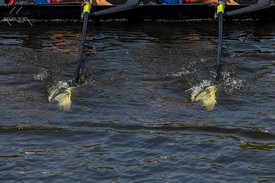

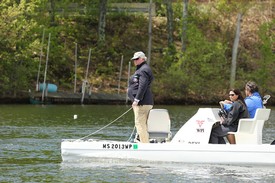
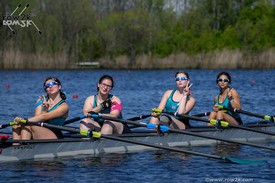
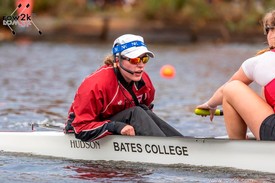









08/28/2018 12:34:34 PM
03/17/2017 4:16:29 PM
Clearly US Rowing has not capitalized on marketing opportunities provided by the decade plus winning streak of the W8+, whether in advertising or soliciting private funding, to provide a steady stream of adequate funding. If not for the generosity of Finn Caspersen, US elite rowing likely would not even have a home. Are there marketing efforts? Are other major benefactors targeted in an organized manner? It would be interesting to know the plans of US Rowing to meet these funding challenges.
While the above are long-term structural concerns, there are also questions about the stability of US elite rowing raised by the recent changes in the men’s coaches. In particular, US Rowing has kept, at least for a while, Coach Volpenhein, who achieved the least success in Rio, with his boat, the priority boat, not even making the A final when expected to be in contention for a sliver or bronze medal, while letting Coach McGee go even though his team, the M8+ had the best performance at Rio of any US non-priority camp rowing team, men and women, coming closest to the pre-Olympics expectations (3rd or 4th) -- the W2- finished 4th and W4x finished 5th when each was predicted to be 2nd or 3rd in their events. Curious, at best, from outside the tent.
Which raises the question of why the US Rowing staff selected the M4- as the priority boat. While in retrospect that was a wrong decision, it could be that the decision making process was appropriate -- or not. Either way, the result of that decision was that the M8+ had to contend without the top US male rowers; would their participation in the M8+ have made a bronze medal difference? If they had, would the current turmoil exist? Was responsibility properly allocated to US Rowing personnel for this decision?
And in looking at the results and performance of the coaches, did US Rowing consider the effect of simple “rowing luck”? After wining the rep, the US M8+ should have been awarded the best remaining lane after GB and Germany. It was placed in lane 5, and the Netherlands (2nd in the rep) in lane 2 and Poland (4th in the rep) in lane 1. But on the last day of the Rio regatta, as noted by the commentators on the race broadcasts, there was a building quarterly tailwind that came in from the left side of the course, with the result that in the 8+ finals the boats that finished 1st and 3rd in the rep were in the more adverse lanes 5 and 6 while the boats that finished 2nd and 4th in the rep were assigned to the more favored lanes 1 and 2. In the Women’s singles, of the two boats that finished second in their semifinals, USA was assigned lane 2, the more favored on that day, and New Zealand was assigned the burdened lane 5, simply due to the allocation process used on that day. With this quartering tailwind in the last three finals, the “inside” boat prevailed against her parallel “outside” boat – lane 3 beat 4, lane 2 beat 5 (and lane 4 in the Women’s single to win the silver) and lane 1 beat 6 (with the one exception being New Zealand in lane 6 finishing fourth in the W8+ and just ahead of Canada in lane 5). In both the W8+ and M8+ races, the boats in lane 2 finished in the bronze medal position ahead of the boats in lane 5 despite each being further back in the rep.
There is no such correlation in the Men’s singles, but the quartering wind was less prevalent in that race than in the later races.
Should the Fairness Committee have recognized the circumstances and changed lane assignments? Perhaps. In the Women’s singles and the two 8s race, the dominant crews did win the gold medals and the “favored” boats in lanes 3 and 4 did win medals. But the wind was a significant factor in the Saturday Rio final results, especially for the boats outside the center lanes with the effect of the different wind being more pronounced the further apart the boats were. In the 8+ races, the Committee could have left the heat winners alone in the center lanes and switched the boats in the outer four lanes in line with their finishes in the rep. In any event, did US Rowing take these factors into account when evaluating the coaches?
There was some call in other responses to your articles about getting more experienced coaches involved at the national level. National team coaching involves long hours all year long, significant time (months) away from home and final judgment depending on the results of one regatta every four years, in which many things, good or bad, can happen. How attractive is that to a successful college coach? Two additional thoughts. While Coaches McGee and Volpenhein are younger coaches, both had had earlier success. But there is no doubt a learning process in coaching at the elite level. It should not be forgotten that Coach Teti, in his first Olympics in 2000, when he had control of assigning rowers to the M4- and M8+, made some controversial decisions and finished out of the medals in both events (finishing 4th and 5th respectively). But US Rowing showed patience and kept him as head coach, with significant success following (despite criticism of his coaching style – Outdoor Magazine and the New Yorker). No such patience this Olympiad. Secondly, giving the abruptness of these coaching changes, within months of signing of new employment agreements and no additional rowing events on which to base any contrary decision, with all the uncertainty that raises, who will want to “trust” US Rowing to have the patience necessary to grow the team in the years ahead, especially in light of the circumstances described above and the structural challenges your articles so well described?